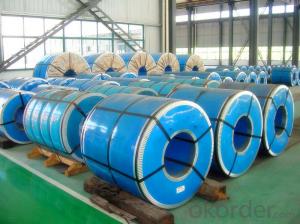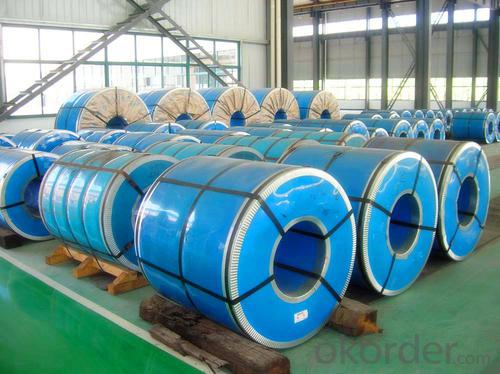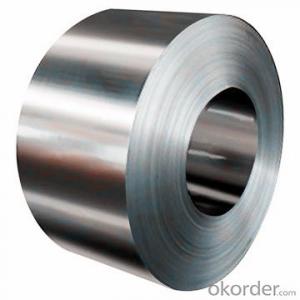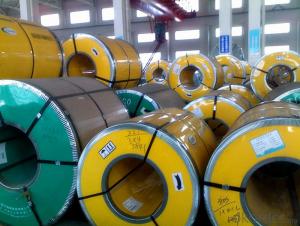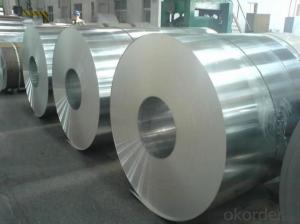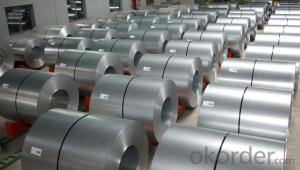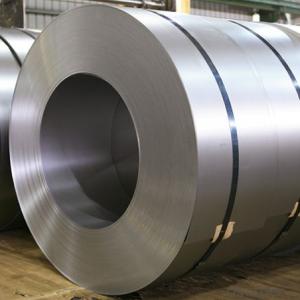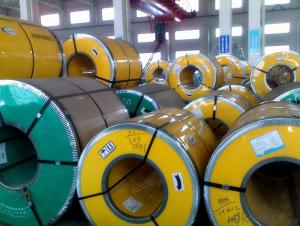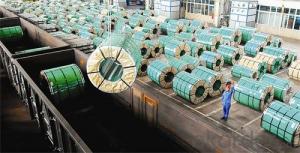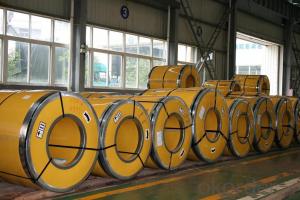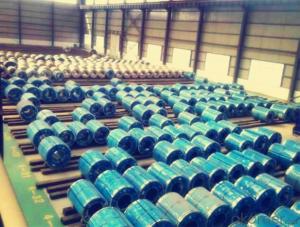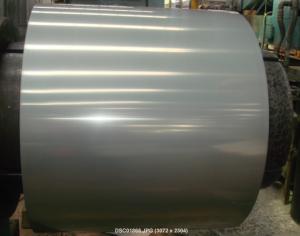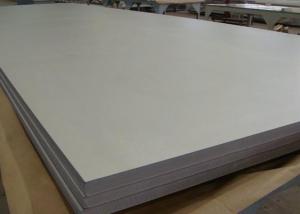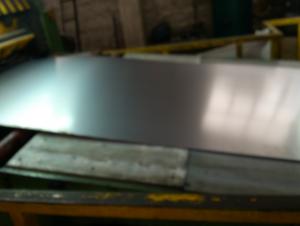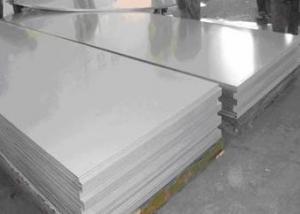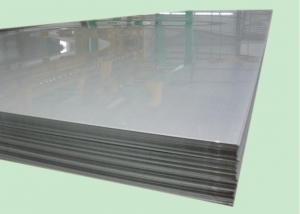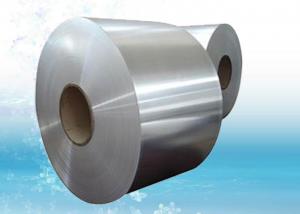Stainless Steel Coil/Sheet 304 Hot/Cold Rolled 2B/BA
- Loading Port:
- Guangzhou
- Payment Terms:
- TT OR LC
- Min Order Qty:
- 100 m.t.
- Supply Capability:
- 20000 m.t./month
OKorder Service Pledge
OKorder Financial Service
You Might Also Like
Hot Rolled Stainless Steel Coil 304
Stainless steel is a production which not easy rust,acid resistance and corrosion resistance,so it is widely
used in light industry,heavy industry,daily necessities and the decoration industry.
Hot Rolled Stainless Steel Coil 304 Specifications
1.surface:NO.1
2.standard:JIS, AISI, GB
3.width: 0.55m, 0.65m, 1.0m, 1.22m, 1.5m, 2m or requirement
Hot Rolled Stainless Steel Coil 304 Chemical Composition:
(%):C=0.07, Mn=2.00, P=0.045, S=0.030, Si=0.075, Cr=17.5-19.5, Ni=8.0-10.5, N=0.10
Hot Rolled Stainless Steel Coil 304 Physical Properties
Tensile strength σb (MPa) ≥ 520
the conditions yield strength σ0.2 (MPa) ≥ 205,
elongation δ5 (%) ≥ 40
Reduction of ψ (%) ≥ 50,
hardness: ≤ 187
HB; ≤ 90
HRB; ≤ 200H
- Q: Can stainless steel strips be used in solar energy systems?
- Solar energy systems can indeed utilize stainless steel strips. The utilization of stainless steel in solar energy systems is widespread due to its exceptional resistance to corrosion, durability, and ability to withstand high temperatures. These qualities render it highly suitable for both indoor and outdoor solar installations. Stainless steel strips find application in solar panels, mounting structures, frames, and brackets, as they offer structural support and guarantee longevity even in harsh weather conditions. Moreover, stainless steel's low coefficient of thermal expansion enables it to maintain its shape and dimensional stability over time, thereby making it an optimal material choice for solar energy systems.
- Q: Are stainless steel strips resistant to abrasion?
- Yes, stainless steel strips are highly resistant to abrasion.
- Q: What are the different types of surface coatings for stainless steel strips?
- Stainless steel strips come with a variety of surface coatings, each offering unique characteristics and advantages. Here are some commonly used types: 1. Passivation: To improve stainless steel's corrosion resistance and appearance, an acidic solution is used to eliminate contaminants and promote the formation of a passive oxide layer. 2. Electroplating: Through an electrochemical process, a layer of metal is deposited onto the stainless steel surface. This coating can provide decorative finishes like gold or chrome plating and enhance corrosion resistance. 3. Powder coating: A dry powder is applied to the stainless steel surface and then heated to create a protective coating. This coating comes in various colors and finishes, offering exceptional durability, resistance to corrosion, chemicals, and UV rays. 4. PVD coating: In a vacuum chamber, a thin film of metal is vaporized and deposited onto the stainless steel surface. This coating offers excellent adhesion, hardness, wear resistance, and can provide both decorative and functional finishes. 5. Paint coating: Stainless steel strips can be coated with paint to create a protective barrier against corrosion and environmental factors. These coatings come in different colors and can be customized for specific properties such as high heat resistance or resistance to chemicals. 6. Ceramic coating: Applied to stainless steel strips, ceramic coatings provide a hard, durable, and heat-resistant surface. They offer excellent abrasion resistance and can give a smooth and glossy finish. When selecting a surface coating for stainless steel strips, it is crucial to consider their specific requirements and applications. Factors like corrosion resistance, appearance, durability, and functionality should be taken into account to ensure the desired performance and longevity of the coated stainless steel strips.
- Q: What are the environmental impacts of using 111 stainless steel strips?
- The environmental consequences of utilizing 111 stainless steel strips can vary depending on several factors. To start, the production of stainless steel necessitates a considerable amount of energy, primarily in the form of electricity. This energy is often derived from fossil fuels, which contribute to the emission of greenhouse gases and climate change. Moreover, the extraction of raw materials, such as iron ore and chromium, can result in adverse environmental effects, including the destruction of habitats and pollution of water sources. Furthermore, the manufacturing process of stainless steel involves the utilization of various chemicals and gives rise to waste products. These chemicals have the potential to contaminate water sources and pose a threat to ecosystems. If not properly managed, the disposal of waste materials like slag and dust can also contribute to pollution. The transportation of stainless steel strips can also have environmental implications, as it typically involves the burning of fossil fuels that emit greenhouse gases and contribute to air pollution. However, stainless steel is renowned for its durability and longevity, which can help minimize the need for frequent replacements. This can result in a reduced overall environmental impact compared to other materials that require more frequent replacements. It is crucial to note that the environmental impacts of using stainless steel strips can be mitigated through responsible sourcing, energy-efficient production processes, and waste management practices. Additionally, the recycling of stainless steel can significantly decrease the necessity for new production, conserving resources and mitigating environmental impacts. In conclusion, the utilization of 111 stainless steel strips can have significant environmental consequences, but these can be minimized through responsible and sustainable practices throughout the entire lifecycle of the product.
- Q: How do stainless steel strips resist erosion?
- Stainless steel strips resist erosion due to their high levels of chromium and nickel content, which form a protective oxide layer on the surface. This oxide layer acts as a barrier, preventing corrosive substances from reaching the underlying metal and thus protecting the stainless steel from erosion.
- Q: Can stainless steel strips be used in medical devices?
- Medical devices can incorporate stainless steel strips, as they possess certain properties that make them suitable for this purpose. Stainless steel is a commonly utilized material in the manufacturing of medical devices due to its distinct characteristics. Its corrosion resistance is particularly crucial for devices that come into contact with bodily fluids and tissues. Moreover, stainless steel is known for its remarkable strength, durability, and outstanding biocompatibility, enabling its utilization in a wide range of medical applications, including surgical instruments, implants, and diagnostic equipment. Furthermore, stainless steel can be readily sterilized, guaranteeing the safety and efficacy of medical devices.
- Q: Can stainless steel strips be used in chemical storage tanks?
- Stainless steel strips have the capability to be utilized within chemical storage tanks. The properties of stainless steel are renowned for their ability to resist corrosion, rendering it suitable for the safekeeping of various chemicals. Stainless steel is capable of withstanding a wide range of corrosive substances, such as acids, bases, and solvents. Furthermore, stainless steel possesses exceptional strength and durability, enabling it to endure the harsh conditions frequently encountered in chemical storage tanks. Its inert properties also guarantee that it does not interact with the chemicals being stored, thereby preserving the integrity of the materials being held. All in all, the corrosion resistance, strength, and durability of stainless steel strips make them a popular and favored choice for chemical storage tanks.
- Q: Can stainless steel strips be used in the production of jewelry clasps?
- Indeed, the utilization of stainless steel strips is viable for crafting jewelry clasps. This material boasts durability and resistance to corrosion, rendering it suitable for diverse applications, including the realm of jewelry production. By shaping and molding stainless steel strips, an array of designs for clasps can be achieved, thereby offering both practicality and visual appeal. Furthermore, the enduring resistance of stainless steel to tarnishing and fading guarantees the longevity of the clasps' aesthetic appeal. Given its versatility, jewelry designers and manufacturers frequently favor stainless steel as a prime option.
- Q: Can stainless steel strips be used for magnetic applications?
- Yes, stainless steel strips can be used for magnetic applications. However, it is important to note that stainless steel itself is not a magnetic material. The magnetic properties of stainless steel strips are typically achieved by adding other elements such as nickel or manganese to the alloy. These elements help to create a magnetic structure within the stainless steel, allowing it to be attracted to magnets. It is also worth mentioning that the magnetic strength of stainless steel strips may vary depending on the specific composition of the alloy.
- Q: What are the different grades of stainless steel strips?
- There are several different grades of stainless steel strips, including grades 304, 316, 409, and 430. Each grade has different properties and characteristics, making them suitable for various applications.
Send your message to us
Stainless Steel Coil/Sheet 304 Hot/Cold Rolled 2B/BA
- Loading Port:
- Guangzhou
- Payment Terms:
- TT OR LC
- Min Order Qty:
- 100 m.t.
- Supply Capability:
- 20000 m.t./month
OKorder Service Pledge
OKorder Financial Service
Similar products
Hot products
Hot Searches
Related keywords
